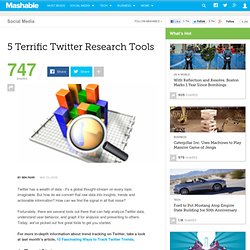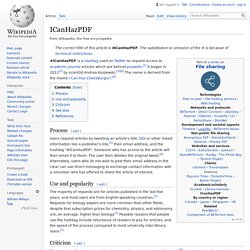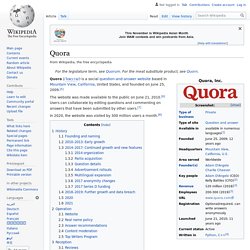

BookFinder.com: New & Used Books, Rare Books, Textbooks, Out of Print Books. A Guide to Top Academic Search Engines and Databases for Scholars. Academic search engines play a very important role in discovering academic resources, scholarly works, journal articles, etc.

Below is a guide/ survey of some of the outstanding, free academic search engines. A few of them are inclusive of academic repositories and databases as well. 1. African Journals Online Run by a non profit organization in South Africa in partnership with a large number of African journals, it is probably the world’s largest collection of peer-reviewed, African-published scholarly journals. ajol has 479 journals, 8635 issues, 98503 abstracts and 93459 full texts available.
A very good resource for all those interested in African journals. 2. A treasure trove for the lovers of academic open source web resources. An excellent resource. 3. Hymnary.org: a comprehensive index of hymns and hymnals. AnswerThePublic.com: that free visual keyword research & content ideas tool. Google Scholar. OALIB_Open Access Library. Educational Technology and Mobile Learning: 12 Fabulous Academic Search Engines. Coming to you from the wonderful Nova Scotian city, Halifax (Canada), Educational Technology and Mobile Learning is an educational blog dedicated to curating, reviewing and sharing EdTech tools and mobile apps.

The purpose is to help teachers and educators effectively integrate digital technologies into their day-to-day teaching, learning and professional development. For any questions regarding the blog website or the published content , please contact EdTech admin, editor and blog owner, Med Kharbach at: info@educatorstechnology.com. Med Kharbach is a doctoral researcher and a former teacher with 10 years of classroom teaching experience.
SearchHash: make your own spreadsheet of hashtagged tweets to savour. Quicko: An innovative search engine. EdITLib Digital Library New Search Engine. Twurdy Search - Search for Readable Results. 5 Terrific Twitter Research Tools. Twitter has a wealth of data - it's a global thought-stream on every topic imaginable.

But how do we convert that raw data into insights, trends and actionable information? How can we find the signal in all that noise? Fortunately, there are several tools out there that can help analyze Twitter data, understand user behavior, and graph it for analysis and presenting to others. Today, we've picked out five great tools to get you started. For more in-depth information about trend tracking on Twitter, take a look at last month's article, 15 Fascinating Ways to Track Twitter Trends. 1.
Trying to figure out how often you're actually tweeting? Ideal for: researching individual behavior on Twitter 2. Trendrr is a new favorite among analysts looking to keep track of trends and compare information. 100 Time-Saving Search Engines for Serious Scholars (Revised) Back in 2010, we shared with you 100 awesome search engines and research resources in our post: 100 Time-Saving Search Engines for Serious Scholars. It’s been an incredible resource, but now, it’s time for an update.
Some services have moved on, others have been created, and we’ve found some new discoveries, too. Many of our original 100 are still going strong, but we’ve updated where necessary and added some of our new favorites, too. Check out our new, up-to-date collection to discover the very best search engine for finding the academic results you’re looking for. General Need to get started with a more broad search? 100 Powerful Search Engines You May Not Know About. 100 Search Engines For Academic Research. 181 Google Tricks That Will Save You Time. Web 2.0 Research Tools - A Quick Guide. ICanHazPDF. #ICanHazPDF is a hashtag used on Twitter to request access to academic journal articles which are behind paywalls.[1] It began in 2011[2] by scientist Andrea Kuszewski.[3][4] The name is derived from the meme I Can Has Cheezburger?.

[4] Process[edit] Users request articles by tweeting an article's title, DOI or other linked information like a publisher's link,[5] their email address, and the hashtag "#ICanHazPDF". Someone who has access to the article will then email it to them. The user then deletes the original tweet.[6] Alternately, users who do not wish to post their email address in the clear can use direct messaging to exchange contact information with a volunteer who has offered to share the article of interest.
Quora - Wikipedia. Question-and-answer platform Quora () is a social question-and-answer website based in Mountain View, California, United States, and founded on June 25, 2009.[5] The website was made available to the public on June 21, 2010.[6] Users can collaborate by editing questions and commenting on answers that have been submitted by other users.[7] In 2020, the website was visited by 300 million users a month.[8] History[edit] Founding and naming[edit] Quora was co-founded by former Facebook employees Adam D'Angelo and Charlie Cheever in June 2009.[3] In an answer to the question "How did Adam D'Angelo and Charlie Cheever come up with the name Quora?

" 2010–2013: Early growth[edit]